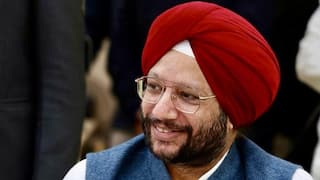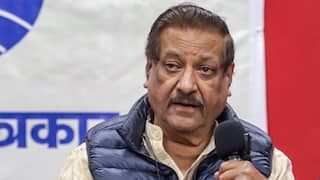SC Refers Delhi Govt's Plea Against Centre's Services Ordinance To Five-Judge Constitution Bench
The SC directive came after the AAP-led Delhi government and Lieutenant Governor VK Saxena disagreed on the appointment of the DERC chairperson.

The Supreme Court has referred the Delhi administrative services ordinance issue to a five-judge Constitution Bench. The Supreme Court's directive came after the AAP-led Delhi government and Lieutenant Governor Vinay Kumar Saxena failed to reach a consensus on the appointment of the Delhi Electricity Regulatory Commission (DERC) chairperson.
Earlier this week, the Centre argued that the Ordinance was introduced to prevent the Delhi government's attempts to "paralyze the national capital" and "harass officials", reported legal news website Bar and Bench. The Arvind Kejriwal-led Delhi government had approached the SC, alleging that the ordinance completely "sidelined" the elected government.
The apex court on Thursday was hearing two pleas filed by the Delhi government. The first plea challenged the Government of National Capital Territory of Delhi (Amendment) Ordinance, 2023. The ordinance gave the L-G control over the services, transfers, and postings of officials in the national capital. The second plea was against the LG using the ordinance's powers to choose the chairperson for the DERC, reported Bar and Bench. The second matter has been listed for hearing on August 4.
What Is The Delhi Ordinance?
A Constitution Bench led by Chief Justice DY Chandrachud on May 11 ruled that the Delhi government has the authority to make laws and administer civil services in the national capital. However, on May 19, the Centre issued the Government of National Capital Territory of Delhi (Amendment) Ordinance, 2023, asserting its power over services in the capital through the Governor.
The ordinance established a Chief Minister-chaired National Capital Civil Service Authority (NCCSA), which would control the postings and appointments of civil service officers in Delhi government departments, excluding public order, police, and land. The Lieutenant Governor may consult the CM at his "discretion" but his decision would be final in case of disagreements.
Apart from the CM, the Chief Secretary and the Principal Home Secretary would be in the NCCSA as member and member secretary, respectively. The ordinance essentially gives power to veto the CM, giving back the L-G back power over the capital's bureaucracy.
Related Video
Uttarakhand News: Winter Chill Grips North India; Kedarnath Dham Covered in Snow
Top Headlines





































